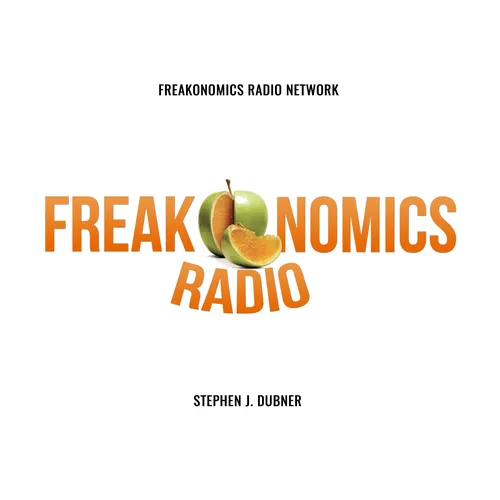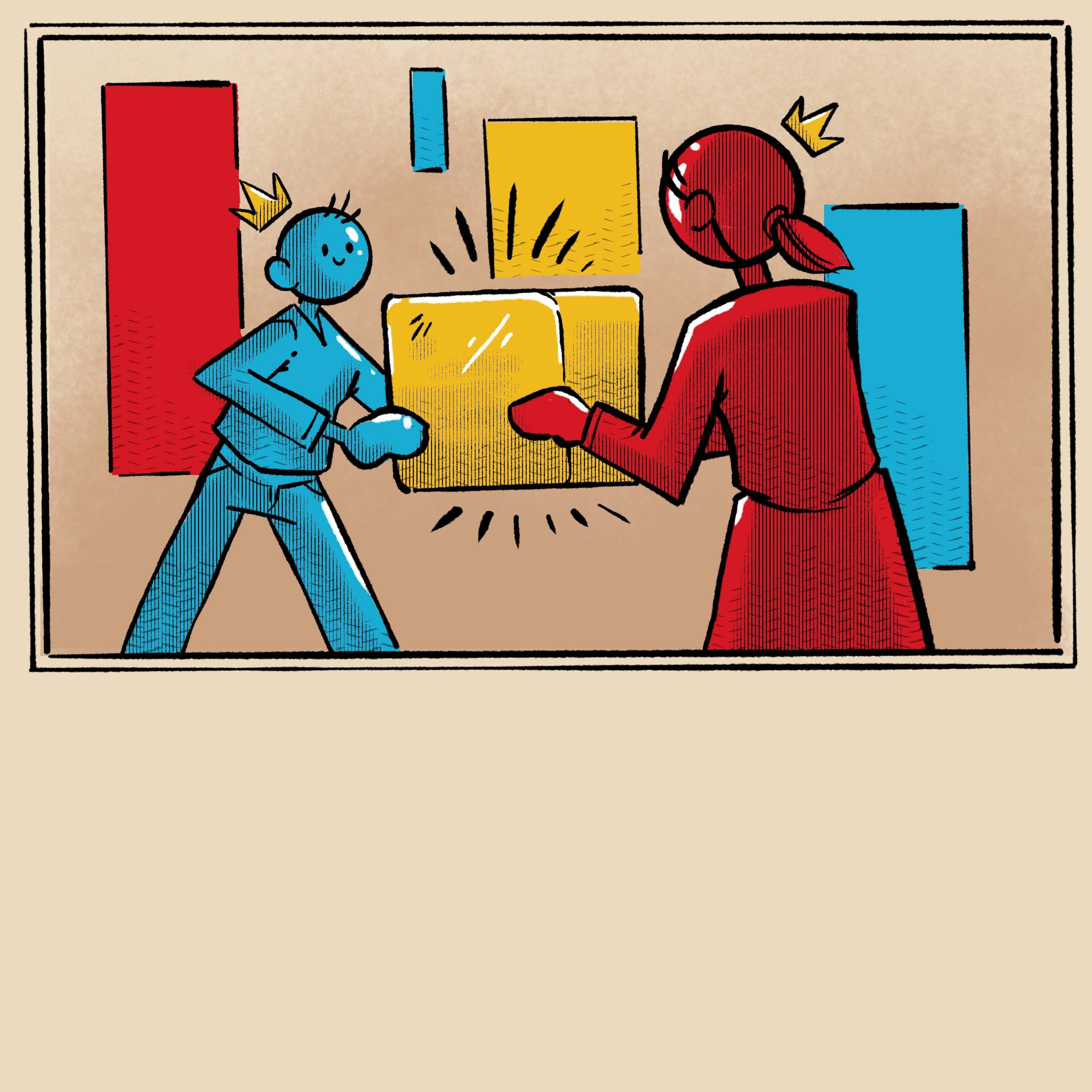
Freakonomics Radio
Freakonomics co-author Stephen J. Dubner uncovers the hidden side of everything. Why is it safer to fly in an airplane than drive a car? How do we decide whom to marry? Why is the media so full of bad news? Also: things you never knew you wanted to know about wolves, bananas, pollution, search engines, and the quirks of human behavior.
To get every show in the Freakonomics Radio Network without ads and a monthly bonus episode of Freakonomics Radio, start a free trial for SiriusXM Podcasts+ on Apple Podcasts or by visiting siriusxm.com/podcastsplus.
- Update frequency
- every 5 days
- Average duration
- 41 minutes
- Episodes
- 856
- Years Active
- 2010 - 2025

600. “If We’re All in It for Ourselves, Who Are We?”
Tania Tetlow, a former federal prosecutor and now the president of Fordham University, thinks the modern campus could use a dose of old-fashioned values.
- SOURCE:
- Tania Tetlow, president of Fordham Uni…

599. The World's Most Valuable Unused Resource
It’s not oil or water or plutonium — it’s human hours. We've got an idea for putting them to use, and for building a more human-centered economy. But we need your help.
- SOURCES:
- Nathan Dietz, research…

EXTRA: Why Rent Control Doesn’t Work (Update)
A new proposal from the Biden administration calls for a nationwide cap on rent increases. Economists think that’s a terrible idea. We revisit a 2019 episode to hear why.
- SOURCES:
- Tommy Andersson, pro…

598. Is Overconsolidation a Threat to Democracy?
That’s the worry. Even the humble eyeglass industry is dominated by a single firm.
We look into the global spike in myopia, how the Lemtosh got its name, and what your eye doctor knows that you don’t…

597. Why Do Your Eyeglasses Cost $1,000?
A single company, EssilorLuxottica, owns so much of the eyewear industry that it’s hard to escape their gravitational pull — or their “obscene” markups. Should regulators do something? Can Warby Park…

EXTRA: People Aren’t Dumb. The World Is Hard. (Update)
You wouldn’t think you could win a Nobel Prize for showing that humans tend to make irrational decisions. But that’s what Richard Thaler has done. In an interview from 2018, the founder of behavioral…

596. Farewell to a Generational Talent
Daniel Kahneman left his mark on academia (and the real world) in countless ways. A group of his friends and colleagues recently gathered in Chicago to reflect on this legacy — and we were there, wit…

595. Why Don't We Have Better Candidates for President?
American politics is trapped in a duopoly, with two all-powerful parties colluding to stifle competition. We revisit a 2018 episode to explain how the political industry works, and talk to a reformer…

594. Your Brand’s Spokesperson Just Got Arrested — Now What?
It’s hard to know whether the benefits of hiring a celebrity are worth the risk. We dig into one gruesome story of an endorsement gone wrong, and find a surprising result.
- SOURCES:
- John Cawley, profes…

593. You Can Make a Killing, but Not a Living
Broadway operates on a winner-take-most business model. A runaway hit like Stereophonic — which just won five Tony Awards — will create a few big winners. But even the stars of the show will have to …

EXTRA: The Fascinatingly Mundane Secrets of the World’s Most Exclusive Nightclub
The Berlin dance mecca Berghain is known for its eight-hour line and inscrutable door policy. PJ Vogt, host of the podcast Search Engine, joins us to crack the code. It has to do with Cold War rivalr…

592. How to Make the Coolest Show on Broadway
Hit by Covid, runaway costs, and a zillion streams of competition, serious theater is in serious trouble. A new hit play called Stereophonic — the most Tony-nominated play in history — has something …

591. Signs of Progress, One Year at a Time
Every December, a British man named Tom Whitwell publishes a list of 52 things he’s learned that year. These fascinating facts reveal the spectrum of human behavior, from fraud and hypocrisy to Whitw…

EXTRA: The Opioid Tragedy — How We Got Here
An update of our 2020 series, in which we spoke with physicians, researchers, and addicts about the root causes of the crisis — and the tension between abstinence and harm reduction.
- SOURCES:

590. Can $55 Billion End the Opioid Epidemic?
Thanks to legal settlements with drug makers and distributors, states have plenty of money to boost prevention and treatment. Will it work? (Part two of a two-part series.)
- SOURCES:
- Keith Humphreys, p…

589. Why Has the Opioid Crisis Lasted So Long?
Most epidemics flare up, do their damage, and fade away. This one has been raging for almost 30 years. To find out why, it’s time to ask some uncomfortable questions. (Part one of a two-part series.)
…

Extra: Car Colors & Storage Units
Presenting two stories from The Economics of Everyday Things: Why does it seem like every car is black, white, or gray these days? And: How self-storage took over America.
- SOURCES:
- Tom Crockett, class…

588. Confessions of a Black Conservative
The economist and social critic Glenn Loury has led a remarkably turbulent life, both professionally and personally. In a new memoir, he has chosen to reveal just about everything. Why?
- SOURCE:

Should Companies Be Owned by Their Workers?
The employee ownership movement is growing, and one of its biggest champions is also a private equity heavyweight. Is this meaningful change, or just window dressing?
- SOURCES:
- Marjorie Kelly, distingu…

586. How Does the Lost World of Vienna Still Shape Our Lives?
From politics and economics to psychology and the arts, many of the modern ideas we take for granted emerged a century ago from a single European capital. In this episode of the Freakonomics Radio Bo…